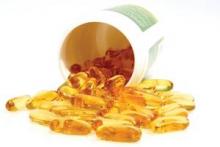Omega-3 fatty acids are “essential fatty acids” meaning they are vital for normal metabolism, but cannot be synthesized by the human body. Many omega-3 FAs are formed in the chloroplasts of green leaves and algae, which is where fish obtain them since fish do not manufacture them either. Interest in omega-3 FAs exploded in the 1970s after it was discovered that an Inuit tribe in Greenland consumed large amounts of fish and had no identifiable cardiovascular disease.
While some continue to suggest that the cardiovascular benefits of omega-3 FAs are “controversial,” data continue to accumulate supporting their benefits.
In a recently published systematic review, the effect of omega-3 FAs supplementation on endothelial function was measured by flow-mediated dilation and endothelium-independent vasodilation. A total of 16 eligible studies involving 901 participants were included.
All the studies evaluated eicosapentaenoic acid (EPA) or docosahexaenoic acid (DHA) – the most well known omega-3 FAs – or alpha-linolenic acid (ALA) from walnuts. At a dose of 0.45 to 4.5 grams/day over a median of 56 days, omega-3 FAs significantly increased flow-mediated dilation by 2.30% (95% CI: 0.89–3.72%, P = 0.001). (Atherosclerosis 2012;221:536-43).
For clinicians, dosing recommendations of omega-3 FAs are important to keep in mind since many of our patients believe that “more is better.” While low doses may be anti-inflammatory, higher doses may be pro-inflammatory. Taken in excess of 3 grams per day, omega-3 FAs may increase bleeding, levels of low-density lipoproteins, and blood sugars in diabetics.
Perhaps the only thing “controversial” about fish oil for reducing cardiovascular risk is that we are not recommending it to our patients frequently enough.
Plant-based sources of omega-3 FAs include flaxseed, pecans, and hazelnuts. Fish oil tablets are an easy way for our patients to get omega-3 FAs from an animal source, but it may be important to select slightly more expensive brands that advertise the removal of mercury since cold-water oily fish sources may accumulate mercury and fat-soluble toxins. For patients who do not wish to take it because of “fish burps,” purchasing “burpless brands” or putting pills in the freezer before consumption may eliminate this effect. Worked for me.
Jon O. Ebbert, M.D., is a professor of medicine and a primary care clinician at the Mayo Clinic in Rochester, Minn. He declares having no conflicts of interest. The opinions expressed are solely those of the author. Contact him at ebbert.jon@mayo.edu.


